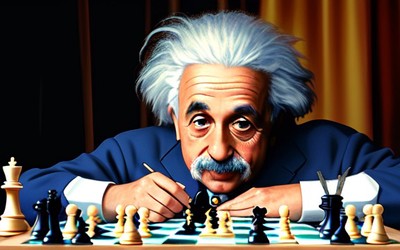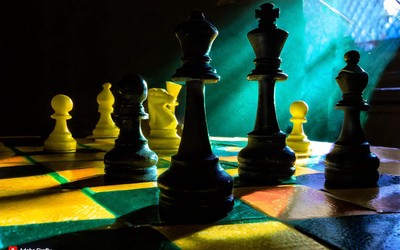
Adobe Firefly
How sharp is your concentration? Part I
Chess is a game that requires a high level of concentration and mental focus. The player's mind is his main tool, and concentration is the key that sharpens it. From the moment the pieces are positioned until the end of the game, concentration is essential in all aspects of the game. It is necessary to analyze positions, anticipate the opponent's movements, accurately calculate future moves and remain calm in the face of the complexities of the board.
The ability to remember past positions and learn from mistakes is essential to progress in chess. However, memory alone is not enough. Concentration is essential to maintain focus throughout a game that can last for hours. Distractions are mortal enemies, players capable of maintaining a high level of concentration have greater chances of victory.
Tactics is the art of the moment, of tricks and traps. It is the ability to find opportunities in the current position on the board and exploit them to the fullest. Players must always be alert to tactics such as fork, spit and distraction, ready to use them to their advantage or to avoid them when in danger. But tactics are just one piece of the puzzle.
Strategy is the long-term vision, understanding the big picture of the game. Grandmasters not only calculate individual moves, but also plan a series of actions that will lead them to victory. They seek to create positional advantages, control the center of the board and maneuver their pieces into more active positions.
And, of course, there is calculation - the ability to deeply analyze the possibilities in each position. Players must be able to see several plays ahead, anticipating the opponent's responses and evaluating the consequences of each course of action. This ability to calculate accurately is what separates good players from true masters. However, none of the techniques mentioned above have any effect if the player's concentration is low!
Changing direction a little, I've always wondered how intertwined tactics and strategy are, as I consider myself a more strategic than tactical player (when my concentration is low I direct my focus to tactics). Based on personal experiences I developed a simple mathematical model that tries to relate these two essential qualities in chess. Although these two qualities are not quantifiable, he attributes this character to them in "brute force".
I have always kept this model restricted to my personal characteristics, but I asked myself: if I apply this model to certain players? so I did! And the results were interesting. I remember that this model is quite simplified and resulted from personal interpretations. I will soon publish the second part of this article.





